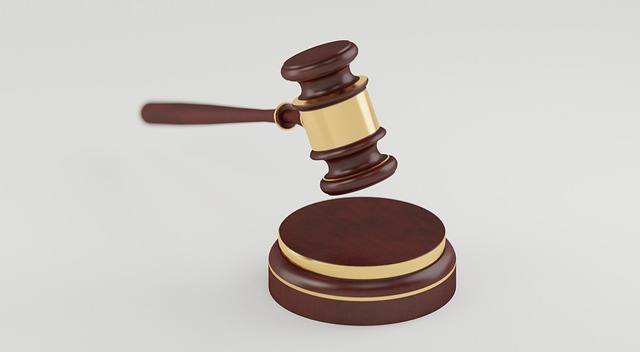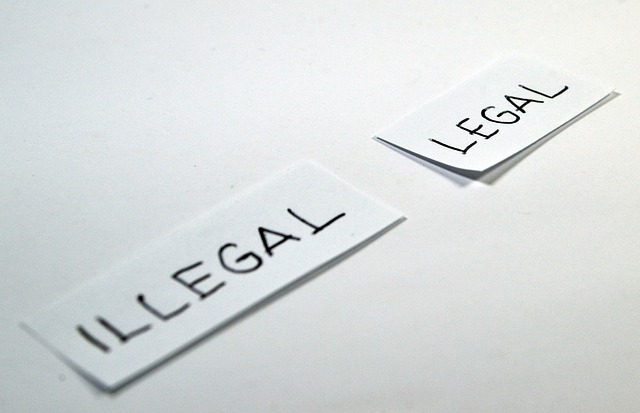Dynamic criminal law reforms globally target fairness, accessibility, and technology. Alternative sentencing reduces prison overcrowding, while stricter police protocols enhance forensics. Understanding criminal law rights is crucial for accused individuals. High-profile cases set precedents, influencing future court decisions. Technology advances in criminal law, enhancing data analytics and digital forensics.
Delve into the dynamic realm of criminal law, where justice and reform intertwine. In this article, we explore the latest developments shaping legal landscapes, from groundbreaking reforms and their profound impact on society to a deeper understanding of rights within criminal proceedings. We analyze high-profile cases that have left an indelible mark, while also scrutinizing the role of technology in revolutionizing criminal justice. Stay informed with insights into these crucial aspects of criminal law.
- Latest Criminal Law Reforms and Their Impact
- Understanding Rights in Criminal Proceedings
- High-Profile Cases Shaping Legal Landscape
- The Role of Technology in Criminal Justice
Latest Criminal Law Reforms and Their Impact

The landscape of criminal law is continually evolving, with reforms aimed at enhancing justice and addressing societal concerns. Recent advancements have focused on issues like sentencing disparities, mental health integration, and technology’s role in policing. These reforms strive to ensure fairness and accessibility within the legal system. For instance, many jurisdictions are implementing alternative sentencing options, such as restorative justice programs, to reduce prison overcrowding and promote community reintegration.
Moreover, the increased scrutiny of police practices and the rise of digital forensics have led to more stringent protocols in criminal investigations. This shift is a response to public demands for transparency and accountability. As these reforms take effect, there’s a notable impact on how criminal cases are prosecuted, with a growing emphasis on evidence-based approaches and a more nuanced understanding of justice.
Understanding Rights in Criminal Proceedings

In any criminal proceeding, understanding one’s rights is paramount for accused individuals. According to principles deeply rooted in criminal law, suspects are protected by a framework designed to safeguard their interests and ensure fairness throughout the process. The right to remain silent, for instance, allows individuals to avoid self-incrimination, while the right to legal counsel guarantees access to a lawyer who can provide guidance and representation during investigations and trials.
These rights extend beyond the initial arrest and questioning phases. During trial, accused persons have the right to a fair and impartial jury, the opportunity to confront witnesses against them, and the ability to present evidence in their defense. Knowledge of these rights empowers individuals, enabling them to navigate criminal proceedings with confidence, ensuring they receive the protections the law affords.
High-Profile Cases Shaping Legal Landscape

High-profile cases often have a profound impact on shaping the legal landscape in criminal law. These cases, involving notorious criminals or complex crimes, attract significant media attention and public interest. They set precedents that can influence future court decisions, as judges often refer to past high-profile cases when faced with similar scenarios. For instance, landmark trials for notable crimes like murder or terrorism can establish new legal standards and interpretation of existing laws.
Moreover, these cases bring to light emerging trends in criminal behavior and prompt legislatures to consider updates to criminal codes. They may highlight loopholes or injustices within the current system, leading to reforms aimed at enhancing fairness and effectiveness in administering justice. As a result, high-profile criminal cases not only resolve individual crimes but also contribute to evolving the broader legal framework of criminal law.
The Role of Technology in Criminal Justice

The rapid advancement in technology has significantly transformed the landscape of criminal justice, revolutionizing how investigations, prosecutions, and even crime prevention are conducted. In the realm of criminal law, digital tools have become indispensable assets, enhancing efficiency and accuracy in numerous ways. For instance, advanced data analytics enables prosecutors to identify patterns and trends in criminal activities, facilitating informed decision-making and strategic planning.
Moreover, technology plays a pivotal role in gathering and preserving evidence. Digital forensics experts can extract and analyze data from various devices, such as smartphones and computers, providing crucial insights that might have otherwise remained unseen. This capability has profound implications for investigations, ensuring that justice is served based on solid, digitally-aided evidence. As we navigate the evolving digital era, the integration of technology in criminal law promises to further refine processes, ultimately strengthening the pursuit of justice and public safety.
In conclusion, the realm of criminal law continues to evolve, shaped by recent reforms and technological advancements. Understanding one’s rights in proceedings is crucial, while high-profile cases further navigate the legal landscape. As we move forward, embracing technology in criminal justice promises to enhance efficiency and fairness, underscoring the dynamic nature of this vital field.
